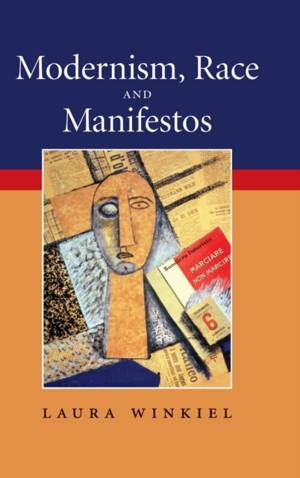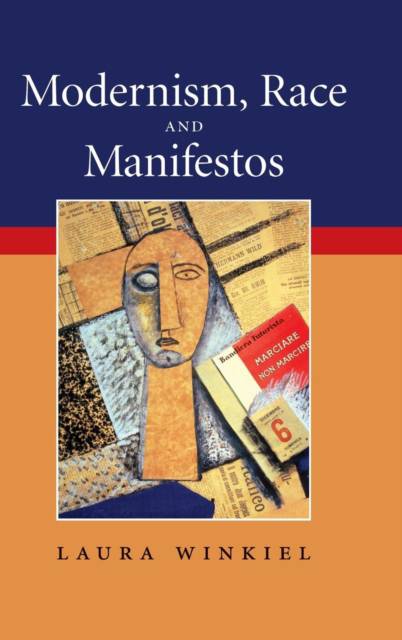
Bedankt voor het vertrouwen het afgelopen jaar! Om jou te bedanken bieden we GRATIS verzending (in België) aan op alles gedurende de hele maand januari.
- Afhalen na 1 uur in een winkel met voorraad
- In januari gratis thuislevering in België
- Ruim aanbod met 7 miljoen producten
Bedankt voor het vertrouwen het afgelopen jaar! Om jou te bedanken bieden we GRATIS verzending (in België) aan op alles gedurende de hele maand januari.
- Afhalen na 1 uur in een winkel met voorraad
- In januari gratis thuislevering in België
- Ruim aanbod met 7 miljoen producten
Zoeken
Omschrijving
The modernist avant-garde used manifestos to outline their ideas, cultural programs and political agendas. Yet the manifesto, as a document of revolutionary change and a formative genre of modernism, has heretofore received little critical attention. This 2007 study reappraises the central role of manifestos in shaping the modernist movement by investigating twentieth-century manifestos from Europe and the Black Atlantic. Manifestos by writers from the imperial metropolis and the colonial 'periphery' drew very different emphases in their recasting of histories and experiences of modernity. Laura Winkiel examines archival materials as well as canonical texts to analyse how Sylvia Pankhurst, Virginia Woolf, Mina Loy, Wyndham Lewis, Nancy Cunard, C. L. R. James, W. E. B. Du Bois, Zora Neale Hurston, Aimé Césaire and others presented their modernist projects. This focus on manifestos in their geographical and historical context allows for a revision of modernism that emphasizes its cross-cultural aspects.
Specificaties
Betrokkenen
- Auteur(s):
- Uitgeverij:
Inhoud
- Aantal bladzijden:
- 254
- Taal:
- Engels
Eigenschappen
- Productcode (EAN):
- 9780521896184
- Verschijningsdatum:
- 17/07/2008
- Uitvoering:
- Hardcover
- Formaat:
- Ongenaaid / garenloos gebonden
- Afmetingen:
- 157 mm x 229 mm
- Gewicht:
- 544 g

Alleen bij Standaard Boekhandel
+ 366 punten op je klantenkaart van Standaard Boekhandel
Beoordelingen
We publiceren alleen reviews die voldoen aan de voorwaarden voor reviews. Bekijk onze voorwaarden voor reviews.









